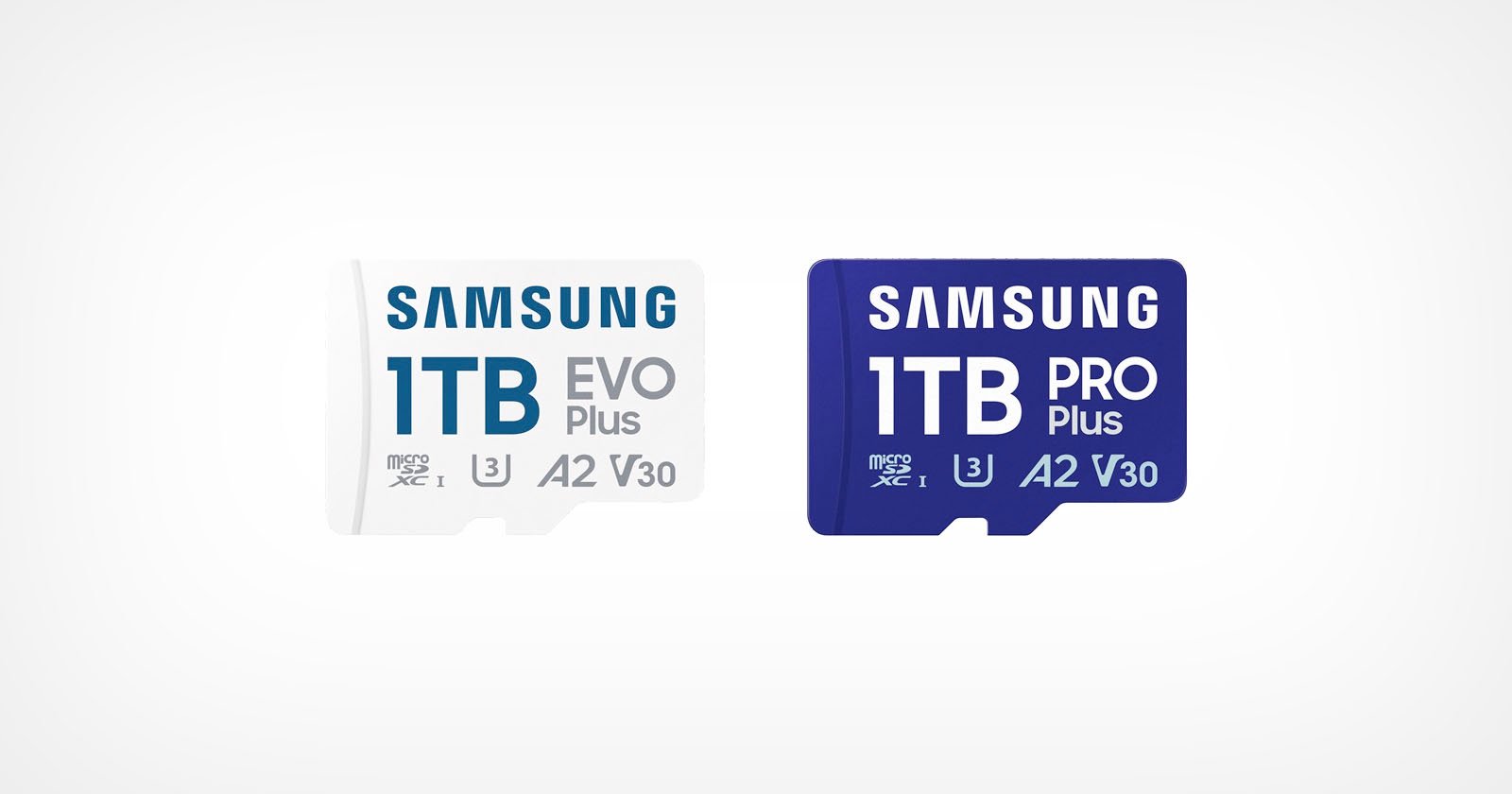Samsung’s New 800 MB/s microSD Card is World’s First to Use SD Express

Samsung has developed a new line of SD Express microSD cards that boast some seriously impressive specifications like 1TB capacity and 800 MB/s transfer speeds. That sounds great on the surface, but it isn’t the whole story.
Samsung’s announcement isn’t for general availability but that it has begun producing these new SD Express microSD cards. The company plans to release a series, starting at the bottom with a 256GB capacity (which isn’t in mass production yet, but rather it “started sampling” them) and increasing to a 1TB capacity, which it says it has started to mass produce.
“With our two new microSD cards, Samsung has provided effective solutions to address the growing demands of mobile computing and on-device AI,” Hangu Sohn, Vice President of the Memory Brand Product Biz Team at Samsung Electronics, says.
“Despite their tiny size, these memory cards deliver powerful SSD-like performance and capacity to help users get more out of demanding modern and future applications.”
These are the industry’s first microSD cards to use the SD Express specification that promises maximum transfer speeds of up to 800 MB/s, significantly faster than the UHS-I interface that caps out at 104 MB/s, Samsung says. Of note, UHS-I isn’t even the fastest microSD card available, so it’s not clear why Samsung is trying to compare to them when UHS-II exists.
Samsung’s new 1TB microSD card stacks eight layers of the company’s 8th generation 1-terabit (Tb) V-NAND within a microSD form factor, realizing the high-capacity package that used to be possible only in SSDs. The new 1TB microSD card passes the industry’s most rigorous test settings and offers reliable usage even in challenging environments, with features such as water protection, extreme temperature, drop-proof design, wear-out protection, as well as X-ray and magnetic protection.
Samsung says these cards are meant to address the needs of the “new era in mobile computing and on-device AI.”
While all these specifications sound impressive, there are a couple of caveats worth noting. First, while SD Express is backward compatible with standard SD, it will only ever be so at UHS-I speeds due to the limitations of the specification. This is an important note that PetaPixel has pointed out multiple times.

So, the promise of 800 MB/s transfer speeds would only apply if the card was used in a capture device that supported SD Express — of which none exist — or when offloading data to a computer through an SD Express reader — which are rare.
That’s why, despite the promise of rapid speeds, Samsung’s cards only bear the “SDXC I” and “V30” logos: no camera hardware these cards will be used in will be able to use these cards beyond UHS-I speeds.
The issues with SD Express, mainly the fact it is limited in ways that CFexpress is not, have made it unappealing to hardware manufacturers. To date, no camera maker has signed on to use the specification, instead opting to go with CFexpress or SD’s older UHS-I and UHS-II specifications.
Despite this, Samsung intends to bring the cards to market later this year — specifically sometime in Q3 2024. The company did not note how much they will cost, however.